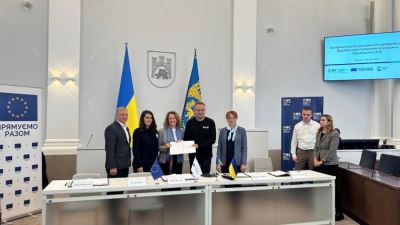BNP Paribas supports Phenix, the French start-up fighting food waste

88 million tons of food end up in the trash bin every year in Europe, including 10 million in France alone - a loss of €16 billion in consumables, while a third would be enough to feed all those in need. (according to ADEME).

French start up Phenix, created in 2014, wants to put an end to this environmental, social and economic nonsense, Supported since its inception by Act For Impact by BNP Paribas, its leader Jean Moreau has just announced 15 million euros raised in order to accelerate Phenix’s development and consolidate its presence in Europe.
BNP Paribas is participating in this round thanks to the 10 million euro investment of the BNP Paribas Solar Impulse Venture Fund and the BNP Paribas Social Business Impact Fund: A new impact investment to make zero food waste the new market standard.
BNP Paribas Solar Impulse Venture Fund and BNP Paribas Social Business Impact are investing to accelerate the fight against waste.
BNP Paribas Solar Impulse Venture Fund: Born out of a partnership between BNP Paribas and the Solar Impulse Foundation, founded by Bertrand Piccard, this fund invests in high potential start-ups and scale-ups that work for the ecological transition, in order to accelerate their development and change their scale.
Open to professional investors - institutional investors, large companies and family offices- the fund aims for a size of €150M to invest primarily in Europe and North America, BNP Paribas has also committed to contributing €75M to the fund.
BNP Paribas Social Business Impact: This fund dedicated to the social and solidarity economy, created and managed by BNP Paribas Asset Management, has been awarded Finansol since 2015, The BNP Paribas Social Business Impact fund is accessible to employees of BNP Paribas Asset Management’s client companies through their solidarity savings plan (company savings plan and retirement savings plan.
Phenix works with all actors in the chain to target zero food waste on a large scale: manufacturers, producers, wholesalers, large and small retailers, public catering, local shops (groceries, caterers, bakers, restaurants, etc.), consumers andcharities. This is achieved through both technological and human solutions on the ground, upstream and downstream.




























